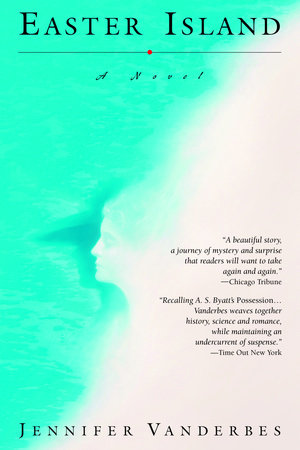Easter Island Reader’s Guide
By Jennifer Vanderbes


1. Would you characterize Elsa and Greer as reflections of one another, or do you consider them to have significantly distinct attitudes and personalities? How might each woman’s storyline have played out in the other’s time period?
2. Elsa’s devotion to Alice is clear from the novel’s first page. Do you feel that Elsa has a realistic or naive perception of Alice’s disabilities? What does Alice represent to Elsa, besides being a devoted sister? Why do you suppose it’s important for Elsa to maintain an image of Alice as pure and blameless?
3. Elsa’s tale ends with a spectacular “what if.” Describe your imagined outcome; were her final years tragic ones, or do you think she found peace at last?
4. Greer possessed keen deductive abilities as a scientist. Why do you suppose it was so difficult for her to realize her husband’s deception?
5. Discuss the parallel aspects of the novel’s two storylines. In what ways are both women on a similar quest? In what ways do they both find themselves strengthened and defeated by Easter Island?
6. How did your interpretation of EASTER ISLAND’s epigraph, “The Legend of Hotu Matua,” shift after you had finished reading the novel?
7. Mahina is deeply religious, nurturing, and holding out impossible hope for a reunion with her husband. In what ways do her traits enrich the novel? Are her religion and Greer’s logic mutually exclusive?
8. Both Greer and Elsa find themselves immersed in mostly male worlds. How are these gender distinctions portrayed in EASTER ISLAND?
9. For Elsa, the arrival of Max brings both emotional and concrete consequences. How does your perception of him change throughout the novel, particularly in light of the letter that comprises one of the book’s opening scenes?
10. Both Elsa and Greer faced oppression by social convention. For Elsa, British laws might have required her to institutionalize Alice. For Greer, the role of wife versus lab assistant was difficult to navigate. Does Easter Island provide the liberation both women are seeking?
11. Why is Easter Island such an appropriate setting for these dual narratives? In what way do its remote, rugged characteristics reflect that of the novel’s main characters? In addition to being a work of fiction that blends historical and contemporary issues, EASTER ISLAND is also part travelogue. What did you discover during your armchair journey to this unique environment?
12. What are the similarities between Greer’s father and Elsa’s? What did each of these men teach their daughters about the world and its inhabitants?
13. What is your opinion of Professor Beazley? What do you believe his motivation in marrying Elsa was?
14. Consider the theme of survival in EASTER ISLAND. What is the significance of Greer’s poisonous spider bite? How might Elsa have “survived” living in England after her life-changing experiences on the island?
15. Greer’s paper, appearing in chapter twenty-nine, proposes that the construction of the moai led to the decline of the island’s indigenous population. In what way does this irony reflect the life experiences of Elsa and Greer? What were their self-destructive “monuments?”
Just for joining you’ll get personalized recommendations on your dashboard daily and features only for members.
Find Out More Join Now Sign In